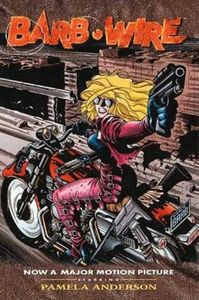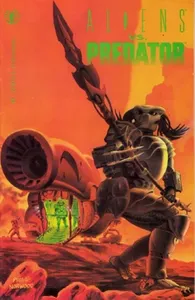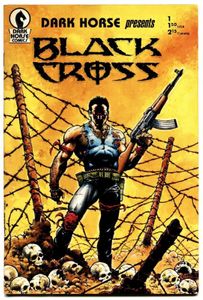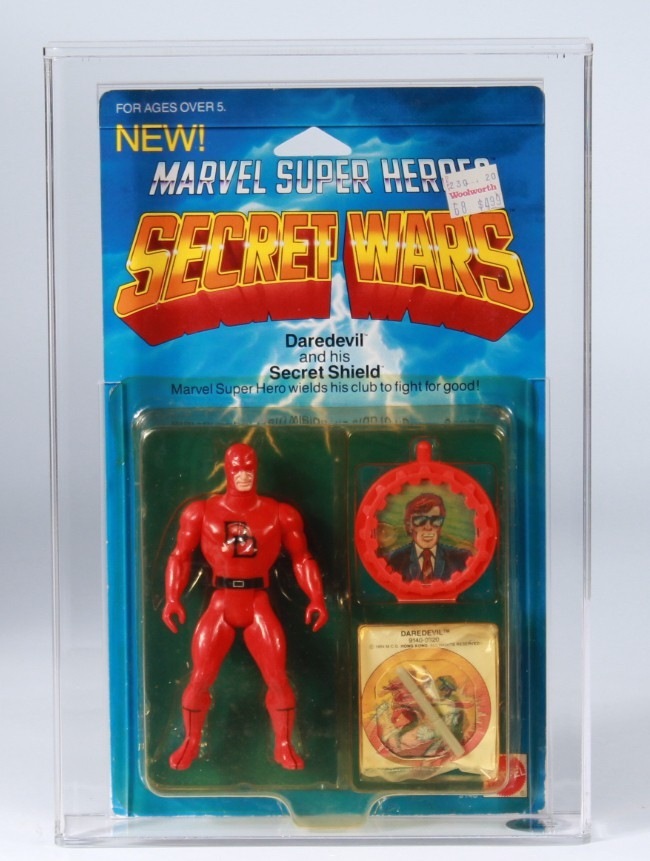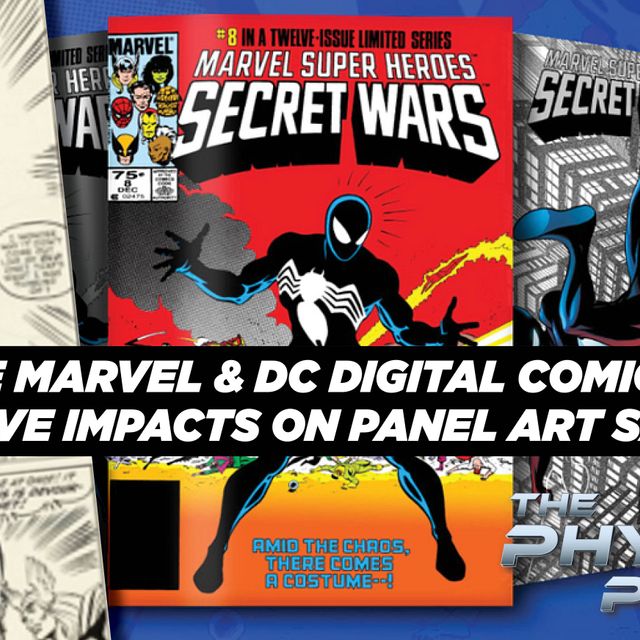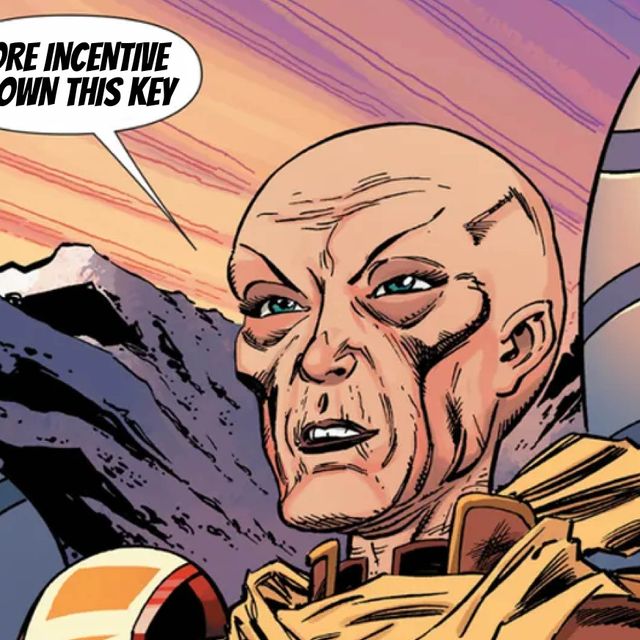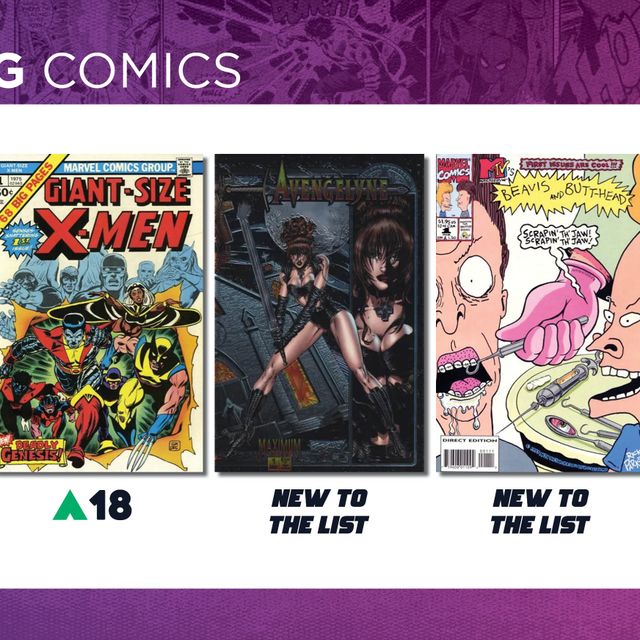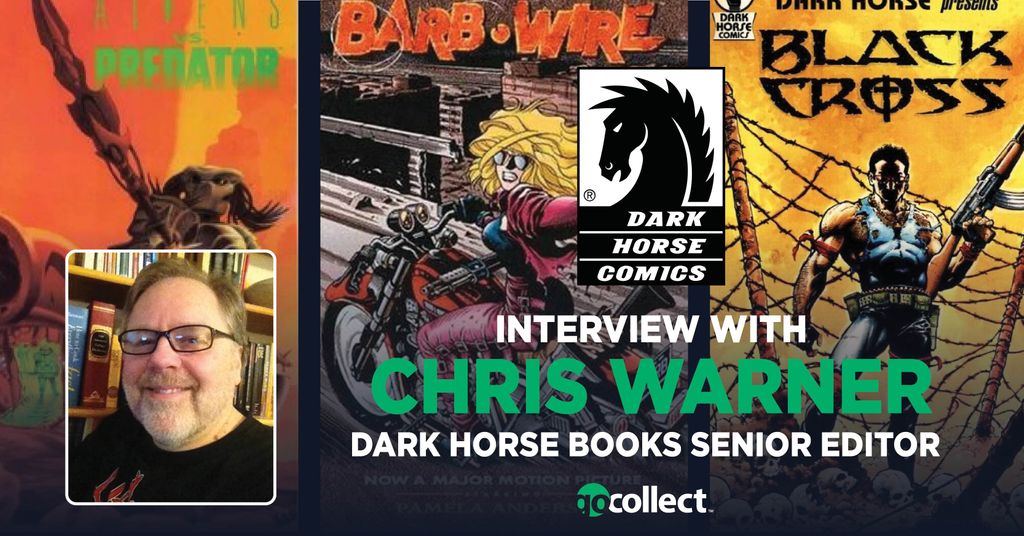
Ever picked up a copy of Aliens vs. Predator or watched that movie? That was Warner’s idea. Ever heard of Barb Wire? Chris again. Ever flipped through the famous Dark Horse Presents title where stories like Frank Miller’s Sin City got their start? Chris Warner was the artist and script writer for the Black Cross character who debuted in its first issue.
Over the past few decades, Warner has worn many hats and has been involved in a number of significant cultural projects. He now spends his days as the Senior Editor at Dark Horse Books where he shepherds through many of the label’s most beloved titles.
Chris was gracious enough to answer questions for GoCollect about his comic origins, working in various parts of the comic industry, and the role that comics play in popular on-screen material these days.
We can't have a comic book conversation without talking about an origin story. What is your origin story with comics? When did you start reading them? What did you read? And, most importantly, when did you start drawing them and thinking it could become a career?
"I think Disney comics were my first. I remember going for a walk with my dad when I was about three or four, and he had a Jiminy Cricket comic for me, which he put in his back pocket but was subsequently lost on the walk. When we got home and the comic was gone, I was very sad. That’s one of my earliest memories.
My dad was an English teacher, but he was an excellent artist, always drawing pictures for me at my request, so I picked up drawing very early on. I know I drew some comics in grade school and middle school and a bunch of stuff in high school, including a terrible SF serial that nobody liked in my high school newspaper. I made an effort to break into comics in the mid-1970s when it was almost impossible to get work if you didn’t live in or near New York. That effort went nowhere, and I got into other things.
I managed a record store and thought my career would be in the music business, but that avenue was a dead end. I really didn’t think seriously about giving comics a shot again until the early 1980s, and I broke in at Marvel in 1984."
How did the transition from working on long-established titles like Dr. Strange, Strange Tales, and Batman to working at Dark Horse happen? Did someone just call you up one day and say, "Hey there's a new comic company starting and we want you?"
"I knew Randy Stradley and Mike Richardson before Dark Horse, so I dipped my toe in when Dark Horse Presents got rolling. I found that I liked what Dark Horse was doing better than what I was doing for Marvel and DC. Soon after Dark Horse made it to print, I got a Batman gig at DC, but hated how it was turning out. I really wanted to work on a Dark Horse project written by Mark Verheiden called The American, and I luckily—and deservedly—got fired from Batman, which gave me the opportunity to work on the kind of interesting book I’d always wanted to draw."
When you began working at Dark Horse, how much input did you have at the beginning to suggest stories, ideas, or out-of-the-box thinking? How did it work going from someone who was an artist to someone who creates iconic characters like Barb Wire or suggests crossovers like Aliens vs. Predator?
"I had a lot of input. It wasn't unusual to find our small crew brainstorming at a local bar after work, and any good ideas were used. That was a fun and exciting time. Honestly, I’m more interested in ideas and storytelling than in being just a pencil for hire, which is part of the reason I stopped drawing comics for a living—aside from the fact that it’s too much damn work!
For the most part, I grew tired of drawing other people’s stories, and when I write stories, I don't really want to draw them because, in my mind, the creative work has already been done."
As someone who has worn just about every hat you can in the world of comics, what part of the process do you enjoy most and why?
"Depends on the day, honestly. It’s all hard work. Inking is probably for me the most enjoyable, generating a sort of Zen state where you’re working without a lot of deep thought. You get into a nice rhythm and just sort of exist. And I enjoy the research involved in writing, where I get to explore and learn."
You are someone who has a lot of diverse interests (and has worked) in music, television, and film. These mediums have always been a way for culture to reflect what is going on in our world. Do you see comics this way - as a lens for who we are and the way we understand things happening around us? Or should comics just be pure escapism with dynamic stories and characters?
"I try not to think about stuff like that. I just care about good stories. If a story is deep and has something to say, great. If it's a kickass thrill ride, also great. Let’s just make good stories and leave the navel-gazing to navel-gazers."
I've learned you like to watch a lot of television shows. With the proliferation of comic book movies and especially television shows, are we close to seeing the on-screen version of the comic book correction of the mid-1990s? Or will audiences continue to tune in no matter what?
"Honestly, I don’t care. For me, movies and TV and comics are different things. If the movie business wants to build its business around comic-book properties, I’m okay with that, but the cross-pollination isn't of interest to me beyond how it might positively affect Dark Horse or me personally. If a good movie or TV show comes from it, I’m all for it. If garbage comes from it, it’s just garbage. I think some people feel that comics are validated when they become source material for movies and TV. Movies and TV based on comics aren't comics any more than movies or TV based on books are books. I like good comics, and I like good movies, but I don't have any personal stake in comic-book movies. I’m interested in comics as comics.
I do, however, think there’s a dangerous trend of comics being valued only as source material for movies and TV. I’d much rather live in a world where comics are created to please audiences of comics readers instead of just serving as meat for the media monster. Too many publishers are chasing entertainment dollars without realizing that if you can’t be profitable as a publisher, you’re going to go out of business."
Are you seeing an increase in interest in comics and sales of comics because of their popularity and presence in pop culture?
"Not really, because comics aren't popular. Movies and TV based on comics are popular for a lot of reasons, but that really hasn't translated to increasing sales of comics. Comics sales have been declining since the 1940s.
There are a lot more people creating comics and the diversity of comics has increased substantially, which are very good things, but I don't think we’re seeing overall greater interest in comics. Even the current popularity of comic cons is more about media celebrities, movies, TV, anime, and cosplay than comics."
When one of DH's comics, characters, or adaptations makes its way on-screen, how are you involved in that process and what kind of presence do you have to ensure they shepherd your ideas the appropriate way?
"I’m not really involved in that stuff, and I’m cool with that. My interfaces with the movie business have been frustrating, to say the least. I’m not really wired to thrive in that environment."
What character or book (yours or anyone) would you bring on-screen that has not presently been adapted?
Black Cross, my own creation, went through development hell in the late nineties. I was told by a Hollywood guy that Black Cross was as close to getting made and not getting made as any movie project he knew of. I’d rather it had been the project that he thought would never be made in a million years that actually got made!
________________________________________________
Thank you again to Chris Warner for the time he spent with us. You can catch up on all the latest Dark Horse Books publications at your local comic shop or online at https://www.darkhorse.com/. You can follow Dark Horse on Twitter at @DarkHorseComics and on Instagram at @darkhorsecomics.
You can follow Chris at facebook.com/chris.warner.52035
